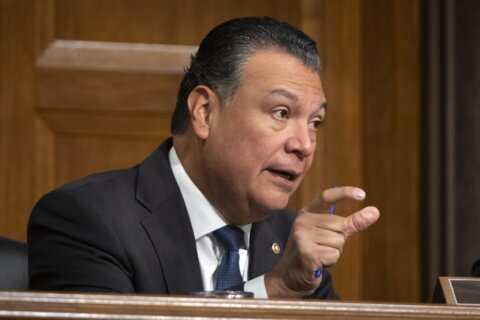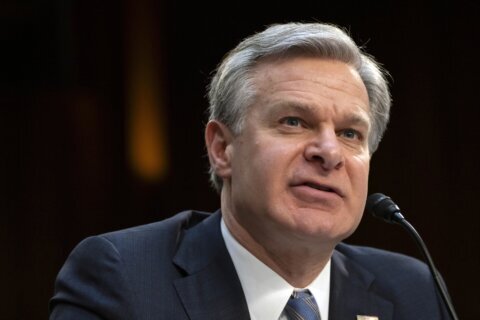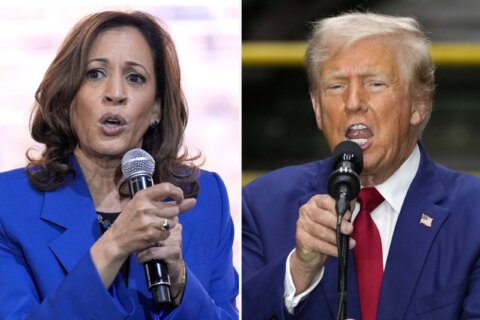South Dakota removed hundreds of people from the state’s voter rolls as general election voting was underway because an agency mistakenly marked the residents’ citizenship status on a government form.
The state Department of Public Safety on Monday announced the removal of 273 “noncitizens,” saying: “This discovery was part of a review to ensure the integrity of South Dakota’s elections and safeguard against improper voter registration.”
The state didn’t initially explain why officials removed people from the voter rolls, but state Division of Elections Director Rachel Soulek on Wednesday said the state took the action in response to a mistake by state workers.
Those people “had inadvertently been registered to vote due to human error by DPS employees where the citizenship status was incorrectly marked,” Soulek said by email when asked about the situation.
A spokesman for the South Dakota attorney general’s office said the office has been notified of the situation.
In a statement, Republican Secretary of State Monae Johnson said, “Ensuring the integrity of our elections is our highest priority. We are proud of the thorough work done to safeguard South Dakota’s voter rolls. We worked closely with DPS to resolve this issue, and we’re constantly working to make sure that only eligible citizens are participating in our elections.”
The move initially drew the ire of the American Civil Liberties Union of South Dakota. The organization had earlier called for the voters to be reinstated and blasted the removal as violating the National Voter Registration Act’s deadline of 90 days before elections for federal office for systematic voter-list maintenance to be completed.
ACLU spokesperson Janna Farley said the organization is still awaiting a response from Johnson’s office to a letter sent to her this week with questions, and declined to give an updated comment until a response comes forth.
South Dakota has about 682,000 registered voters, more than 617,000 of whom Johnson’s office considers to be active.
South Dakota was one of the first states to begin early voting for the November general election. Absentee voting began Sept. 20 in South Dakota.
Voters will be deciding a number of high-profile ballot questions in South Dakota this fall, including measures to enshrine abortion rights, legalize marijuana and repeal the state food tax.
___
Dura reported from Bismarck, North Dakota.
Copyright © 2024 The Associated Press. All rights reserved. This material may not be published, broadcast, written or redistributed.







